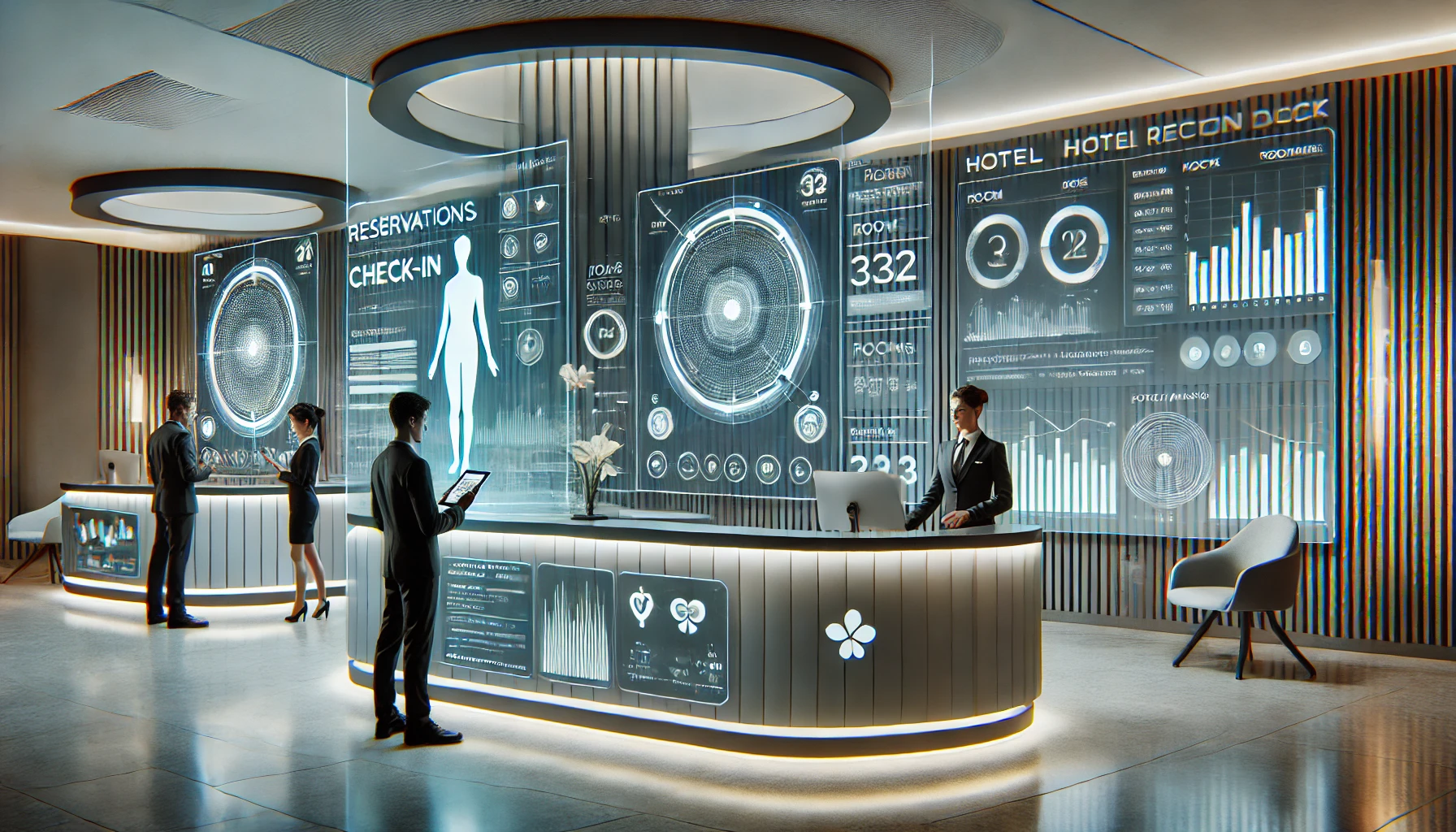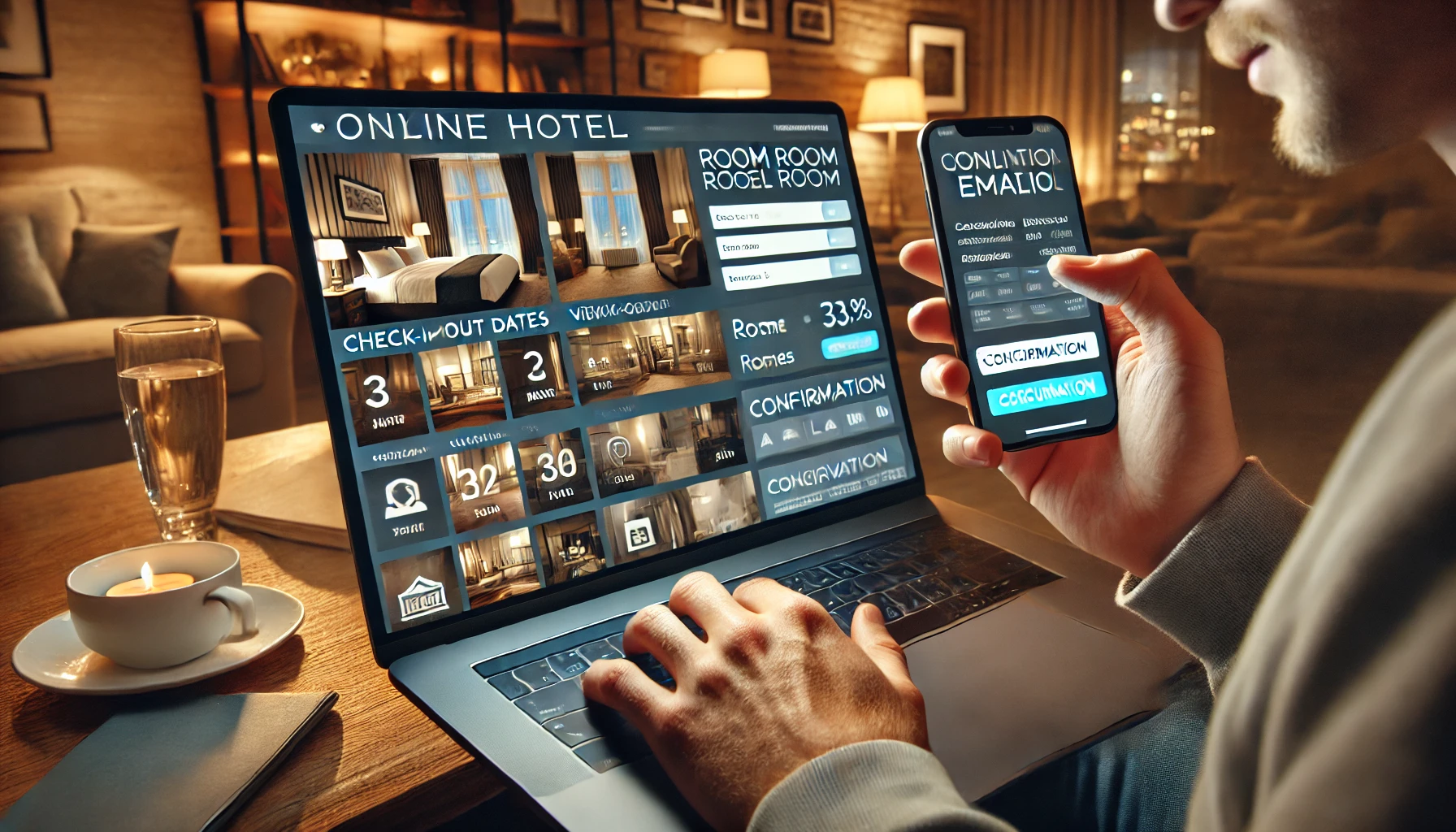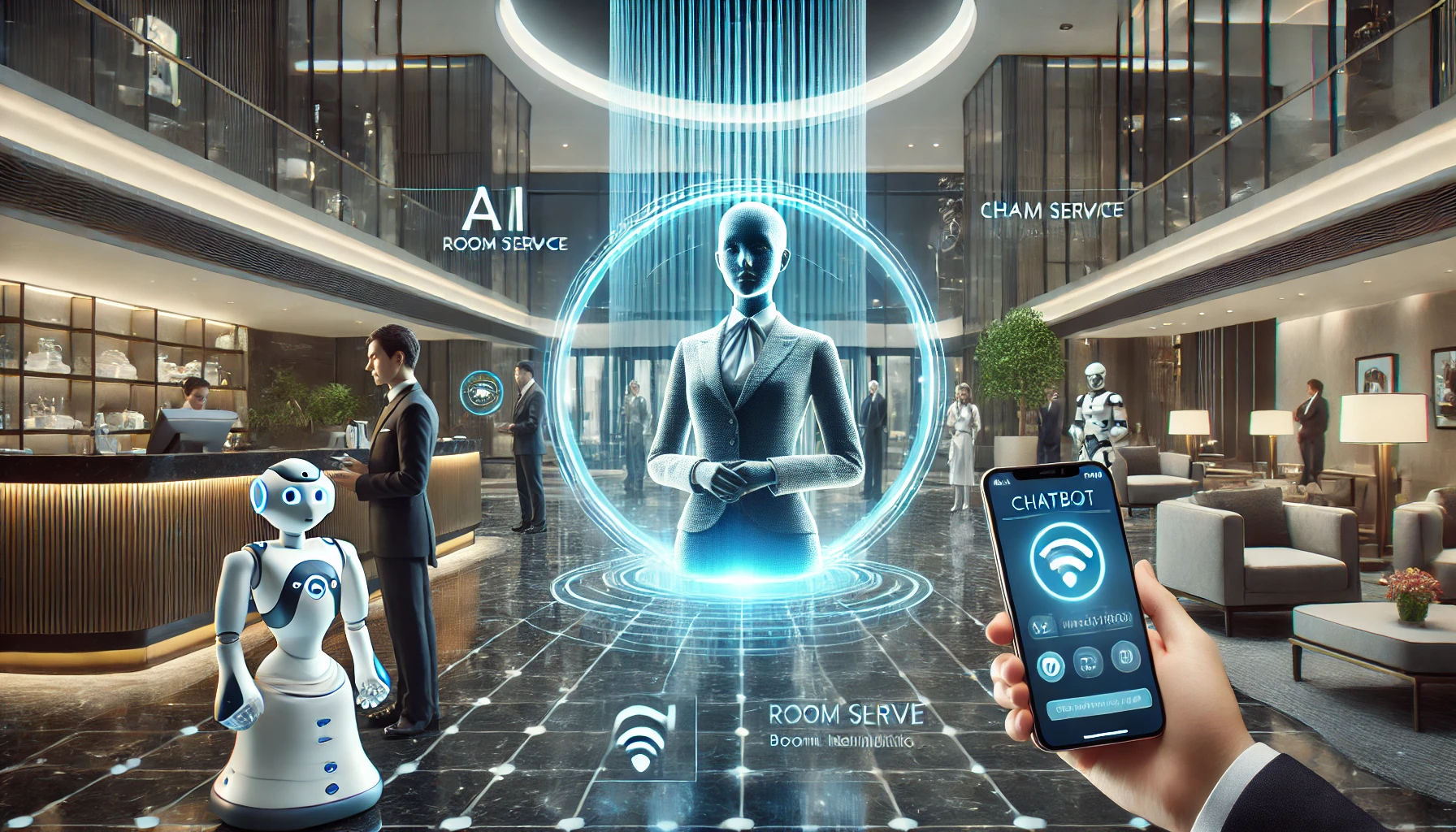In today’s rapidly evolving global market, especially following the significant impact of the COVID-19 pandemic, digital transformation is no longer a novel concept but a mandatory trend across all industries. The hospitality sector, encompassing hotels, restaurants, and tourism, is no exception. With customer experiences becoming increasingly personalized, optimized, and digitized, businesses in this field must quickly adapt or risk being left behind.
Why is Digital Transformation Essential for the Hospitality Industry?
Digital transformation brings profound changes not only in technology but also in management mindset, operational processes, and customer interactions. For the hospitality industry, digital transformation extends beyond simply adopting new technology—it involves reshaping the entire customer experience and optimizing operational costs.
Key Drivers of Digital Transformation in Hospitality:
- Intensified Competition: In the tourism and hospitality sector, competition is no longer just about pricing or service quality but also about how businesses leverage technology. Customers demand speed, convenience, and security. Online booking platforms, social media reviews, and smart hotel technology have made consumers more discerning than ever.
- Demand for Personalization: Modern travelers expect services tailored to their preferences and behaviors. Data analytics, AI, and IoT enable businesses to provide customized experiences, increasing customer satisfaction and loyalty.
- Operational Efficiency and Cost Optimization: Hospitality businesses manage high workloads, from reception and service to financial management and marketing. Digital solutions like hotel management systems (HMS), online booking software, and automation tools reduce costs, minimize errors, and improve efficiency.
- Global Technological Trends: In developed markets like the US, Europe, and parts of Asia, digital transformation is now a standard for business readiness. Leading hotel chains such as Marriott, Hilton, and Accor heavily invest in smart technologies to ensure a seamless customer journey from booking to checkout.
Overview of Digital Transformation in Hospitality
Digital transformation in hospitality integrates technology into every aspect of business operations, from management systems and data analytics to customer service. Given the customer-centric nature of the industry and global connectivity trends, digital transformation is the “golden key” for businesses to maintain market share, increase revenue, and enhance long-term competitiveness.
Core Aspects of Digital Transformation in Hospitality
1. Operational Process Transformation
Businesses must restructure their supply chains, booking systems, payment methods, and service delivery throughout the customer lifecycle. Digitalizing all customer touchpoints enables data collection and in-depth analysis for continuous improvement.
2. Business Model Optimization
With the rise of online travel agencies (OTAs) like Booking.com, Airbnb, and Expedia, traditional businesses must be agile to adapt. Many luxury hotels expand their offerings beyond accommodation to include dining, spa services, events, and even online services to generate additional revenue streams.
3. Workforce Management Improvement
The hospitality sector relies heavily on service personnel. Technologies such as integrated HR management systems, automated attendance tracking, and performance monitoring enhance transparency and efficiency in workforce management.
4. Enhancing Customer Experience
Digital transformation enables businesses to create unique customer experiences through high personalization. By analyzing customer data (booking history, reviews, social media interactions, dining preferences), hotels can recommend rooms, spa services, and restaurants tailored to individual guests. Timely special offers further improve customer satisfaction.
Hotel Management System (HMS): The Foundation of Digital Transformation
Implementing a Hotel Management System (HMS) is a crucial first step in digital transformation. This system serves as the “brain” of hotel operations, synchronizing and optimizing processes from reception and housekeeping to accounting and sales.
Optimizing Operational Processes
Automating Manual Tasks
Instead of manually updating records through spreadsheets or paper logs, all hotel data—including reservations, invoices, and customer information—is centrally managed. This digital transformation in hospitality minimizes human errors, enhances accuracy, and streamlines workflows.
Reducing Labor Costs
With automation, many manual tasks are eliminated, allowing staff to focus on higher-value activities like customer service and guest experience improvement. As a result, operational costs are significantly reduced.
Ensuring Transparent Financial Management
An integrated hotel management system provides accounting, reporting, and risk management functions, allowing business owners to track cash flow, inventory costs, and revenue across multiple sales channels. This enables more accurate budget allocation and strategic business planning.
Upgrading Customer Service
With all guest data—check-ins, stay duration, service requests, and feedback—stored on a unified platform, hotels can respond to guest needs quickly, ensuring a seamless and professional experience.

Enhancing Customer Experience
Customer experience is the cornerstone of the hospitality industry. A well-implemented hotel management system enables businesses to anticipate and cater to guest needs efficiently.
Personalizing Guest Experiences
By leveraging collected data, hotels can send birthday emails, offer personalized promotions, or recommend suitable services. This not only boosts guest satisfaction but also builds long-term customer loyalty.
Fast and Flexible Communication
Hotel management systems integrate with communication channels like email, SMS, mobile apps, and even website chatbots. Guests can request services or ask questions anytime, receiving immediate responses.
Complaint and Feedback Management
All customer feedback is automatically stored and categorized. Hotels can monitor and address issues promptly while using insights to improve service quality.
Online Booking System: Boosting Revenue and Efficiency

Enhancing the Booking Process
- 24/7 Accessibility: Online booking systems allow customers to access reservations anytime, making room bookings and cancellations more convenient.
- OTA Integration: Synchronization with platforms like Booking.com, Airbnb, Agoda, and Expedia ensures real-time room availability and pricing, preventing overbooking and streamlining multi-channel sales.
- Higher Conversion Rates: A user-friendly booking process increases trust and speeds up purchase decisions. Features like instant discounts, loyalty rewards, and upselling opportunities enhance customer commitment.
Additional Features for Guest Convenience
- Multi-language and currency support for international travelers.
- Customizable service packages (e.g., breakfast, spa, airport transfers) for a seamless stay.
- AI-powered personalization for exclusive offers and travel recommendations.
- 24/7 online customer support via live chat, chatbots, and hotlines.
Smart Hotels: The Future of Hospitality

The smart hotel concept has emerged to meet growing demands for convenience, security, and personalization. The foundation of smart hotels lies in Internet of Things (IoT) technology, enabling interconnected devices to communicate and enhance guest experiences.
IoT Applications in Hotel Management
- Smart Energy Management: Automated temperature, lighting, and air conditioning control based on guest presence reduces energy waste.
- Enhanced Security: Smart locks, surveillance systems, fire alarms, and motion sensors ensure real-time safety monitoring.
- Seamless Service Management: Guests can control in-room amenities, request services, or schedule spa appointments via mobile apps or voice assistants.
- Data Analytics for Continuous Improvement: IoT collects real-time usage patterns, enabling hotels to optimize services and personalize guest offers.
AI Integration in Hospitality

AI is revolutionizing hotel operations and customer service:
- AI Chatbots and Virtual Assistants: Provide 24/7 customer support, answering booking queries and offering travel recommendations.
- Predictive Analytics for Revenue Management: AI forecasts room occupancy, market pricing, and seasonal trends, optimizing pricing strategies.
- Personalized Service Recommendations: AI-driven insights tailor experiences based on guest preferences, boosting satisfaction and retention.
- Workforce Optimization: AI assists in staff scheduling and workload prediction, ensuring efficient labor management.
Hotel Management Software: A Vital Tool for Businesses

Property Management Systems (PMS) vary in features, customization, and cost. Choosing the right solution requires considering:
- Hotel Type & Scale: Different hospitality businesses have unique needs—from boutique hotels to large chains.
- Customization & Scalability: PMS should allow seamless feature upgrades and integration with IoT, AI, and CRM systems.
- Cost & Payment Models: Some providers offer subscription-based pricing, while others charge per module or as a one-time purchase.
- Technical Support & Training: A high-quality PMS should include 24/7 support, staff training, and regular software updates, especially in competitive markets like the U.S.
Data Analytics: Powering Smart Decision-Making
Data is the fuel for strategic decision-making in the hospitality industry. Modern hotel management software includes Business Intelligence (BI) features:
- Customer Behavior Analysis: Hotels can track booking frequency, stay duration, and guest preferences to tailor marketing campaigns effectively.
- Revenue Management: Predictive analytics help adjust pricing based on occupancy rates, demand fluctuations, and market trends, maximizing profitability.
- Risk Management: Real-time monitoring identifies unusual patterns (e.g., high cancellation rates), enabling proactive responses.
- Service Quality Control: Analyzing guest reviews across platforms (TripAdvisor, Google Reviews) helps pinpoint strengths, weaknesses, and areas for improvement.
Conclusion: The Future of Digital Transformation in Hospitality
The hospitality industry worldwide, particularly in the U.S., is undergoing a technological revolution. Digital transformation is no longer optional—it is a necessity for businesses aiming to stay competitive. From hotel management systems and online booking solutions to smart hotel innovations powered by IoT and AI, these advancements define the future of hospitality.
To fully leverage digital transformation in hospitality, businesses must invest in technology, people, and processes:
- Technology: Adopt scalable PMS, IoT devices, AI-driven solutions, and cybersecurity measures.
- People: Train employees in digital tools and foster an innovation-driven culture.
- Processes: Standardize and streamline operations, ensuring efficiency and seamless digital workflows.
Customer expectations evolve rapidly, and technology is the key to staying ahead. Digital transformation in hospitality is not just a trend—it’s an ongoing journey requiring continuous investment and adaptation. Companies that embrace these changes will lead the future of the hospitality industry.




